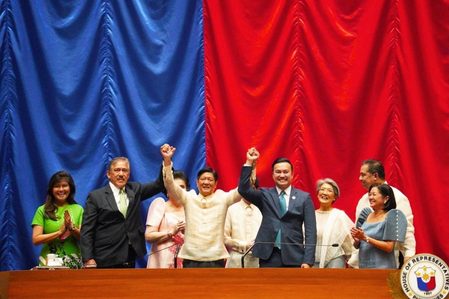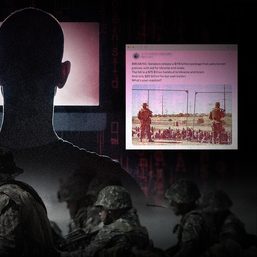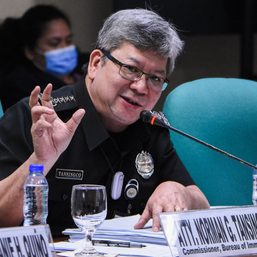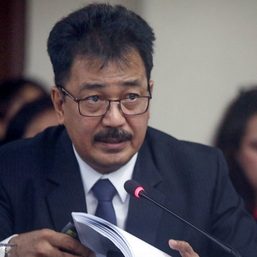SUMMARY
This is AI generated summarization, which may have errors. For context, always refer to the full article.
![[OPINION] Who’s afraid of history? Thoughts on the ‘tsismis’ narrative](https://www.rappler.com/tachyon/2022/07/tl-history-tsismis.jpg)
It has been a few days since a social media post regaling history as “tsismis” occupied online conversations, conjuring reactions ranging from satirical takes to academic clarifications in order to dispel a misleading notion about the nature of historical knowledge. During the heated campaign that led to the election of Ferdinand Marcos Jr. as president of the Philippines, we have been confronted with the challenge of dealing with questions about our nation’s history. Issues about the politics of remembering and forgetting portions of our past have divided public opinion, even pitting friends and family against each other. While we find ourselves still navigating our way amidst a sea of confusion enabled by disinformation, history remains to be at the center of debates. But what is history anyway?
The British philosopher A.C. Grayling once asked: “What, then, is history? Is it an art that creates or a science that discovers?” When we try to think about the nature of history and historical knowledge by answering this question, even historians would find themselves in a moment of thought. Some would say that the importance of grounding historical analysis in evidence and weaving a narrative following a scientific method brings history closer to a systematic way of knowing things, a science. Some, however, would recognize that the very sources of historical evidence are themselves human-made. Coupled with the impossibility of capturing the totality of the details about a past event could lead a historian to exercise her “historical imagination” in the attempt to sensibly put together the puzzle pieces and forward conjectures and present the story, pointing to history having the latitude to create, rather than just discover. The age-old debate on the nature of history is also seen in academic institutions all over the world. Some history departments are found in the humanities; while some in the social sciences. They are never found in a department of “tsismis.”
Whatever the case may be, history is about the past. The very word “history” can actually mean both events that have occurred in the past, and the narratives about these events. One major role of the historian is to find ways to make sense of history as the event by writing history as the narrative. This task is carried out through rigorous research, examining sources, and spending hours thinking about ways to explain and interpret what happened in the past. A community of scholars is also always on guard to review and scrutinize what new knowledge is being forwarded. This is not an easy task. It certainly is not about creating “tsismis.”
Some say biases and opinions shape the way we understand history. This is certainly true, to an extent. There are many histories but there is only one past. However difficult it is to uncover what truly happened in an event in the past does not erase the fact that it happened. In the same vein, even though you did not experience the atrocities of Martial Law, this does not render the experiences of those who did as invalid and untrue. It does not make these experiences “tsismis.”
Since history deals with our past, it is bound to be political. As we deal with questions whether history is a science that discovers or an art that creates, there lies power in this very dilemma. History also deals at the interstices, at the crevices of knowledge trying to find ways to bridge the gap between what has happened before to shed light on what we have now and prepare us for what to come. Yes, history cannot predict the future, but it is also about the future as it is about the past, because we try to understand history in order to better understand ourselves. What stories we pass down to the next generation will leave an indelible imprint about how they will see not only themselves, but also us. We should not pass down “tsismis.”
Those who are afraid of confronting the past would benefit in thinking about history as “tsismis.” History has the power to illuminate. Why would we dwell in the darkness of lies when there is a way to reckon truth? History tells us to be careful about the information we consume. Why would we believe something that has no logical basis and is not grounded on evidence? History teaches us about understanding and not being afraid of change. Why wouldn’t we reevaluate our positions when incontrovertible evidence is before us?
Let’s not be afraid of history. Let’s use its power to empower ourselves. – Rappler.com
Aaron Mallari currently studies at the University of Vienna. He holds a BA and MA in History from UP Diliman. Together with friends, he hosts and produces PODKAS, a podcast about Philippine history, politics, and society.
Add a comment
How does this make you feel?

![[OPINION] On history, wasted time, and ‘Nadine Lustre’](https://www.rappler.com/tachyon/2022/01/imho-history-nadine-education-1.jpg?fit=449%2C449)





![[Time Trowel] Mentorship matters](https://www.rappler.com/tachyon/2024/04/mentorship-matters.jpg?resize=257%2C257&crop_strategy=attention)




There are no comments yet. Add your comment to start the conversation.